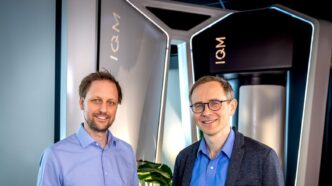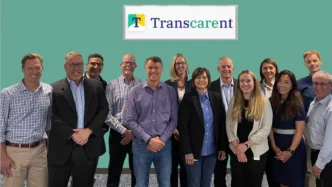Helsinki-based IQM Quantum Computers is reportedly in the midst of securing over €200 million in fresh funding, a move that could mark one of the largest-ever investments in European quantum computing. If successful, it would eclipse its own €128 million Series A round from 2022, which still stands as the continent’s biggest quantum funding round to date.
The startup’s CEO, Jan Goetz, confirmed that the fundraising process is active. In past statements, Goetz has shared that IQM is “constantly fundraising” and that its next round would be “a multiple” of the last one. Since its founding in 2018, the company has attracted more than €200 million in venture capital from global backers like Tencent Holdings, Finland’s Tesi, Maki.VC, OpenOcean, MIG Funds, and World Fund.
Europe’s Bold Quantum Challenger to Tech Giants
IQM Quantum Computers has made it clear it wants to be Europe’s answer to global quantum leaders like Google, IBM, Huawei, and Fujitsu. The Finnish startup operates a dual business model—manufacturing high-performance superconducting quantum processors and offering access to these machines via cloud-based services.
CEO Goetz says IQM stands out by delivering “the fastest, highest-quality, and most stable quantum processors” in the market. At the heart of its operations is an in-house fabrication facility capable of producing up to 20 quantum systems annually. This manufacturing capability allows IQM to maintain full control over the quality and scalability of its technology.
As of now, IQM is ranked the second-most funded independent quantum hardware firm in Europe, a position that strengthens its ability to compete with both regional players and deep-pocketed U.S. rivals.
Inside IQM’s Quantum Product Line: Radiance and Radiance Star
IQM currently offers two main systems. The flagship model, Radiance, is a 54-qubit quantum computer priced at up to €30 million and designed for supercomputing centers. The smaller version, Radiance Star, features 24 qubits arranged in the company’s custom star topology.
Additionally, IQM is preparing to roll out a 150-qubit machine for internal R&D later this year—a major leap in system scale that hints at its long-term ambitions.
Its main European competitors—UK’s Oxford Quantum Circuits and France’s Pasqal—have also raised over $100 million, but each follows a different architectural approach. Globally, however, firms like PsiQuantum have attracted even more capital, with PsiQuantum reportedly raising around $1.6 billion to build photonic-based systems.
Key Milestones Strengthening IQM’s Market Leadership
In collaboration with Finland’s VTT Technical Research Centre, IQM successfully launched Europe’s first 50-qubit superconducting quantum computer. Available through VTT’s national quantum service, the system is the product of four years of joint development and marks a crucial threshold—where quantum systems begin outperforming classical ones in complex tasks.
Another milestone came in late 2024 when IQM won a €5 million contract to deliver the Czech Republic’s first quantum computer. The system will integrate with the Karolina supercomputer and is part of the EU-backed EuroHPC Joint Undertaking initiative.
More recently, in March 2025, the company revealed that one of its quantum systems had run for more than 100 days without human assistance at a customer site. This level of reliability is rare in the quantum world and boosts IQM’s credibility as a commercial-grade provider.
Quantum Race Heats Up: Funding, Talent, and Technological Breakthroughs
IQM’s fundraising efforts come as global competition in quantum tech intensifies. Canadian startup Xanadu is reportedly seeking up to $200 million to fund its expansion. Meanwhile, Google unveiled its 105-qubit “Willow” chip in December 2024, and Microsoft followed with a breakthrough announcement in early 2025.
These rapid advances are accelerating the race toward “quantum advantage”—a point where quantum computers solve real-world problems more efficiently than classical systems. Industries such as finance, cybersecurity, pharma, and climate modeling are expected to benefit most.
With more startups and tech giants competing for talent and capital, IQM’s timing is strategic. Its ability to demonstrate both product maturity and long-term reliability could make it a standout in a crowded space.
Europe’s Quantum Funding Boom—and IQM’s Role in It
The European quantum ecosystem has grown significantly. In 2024 alone, more than €600 million flowed into quantum startups across hardware, software, cryptography, and infrastructure.
IQM’s expected €200 million raise reflects growing investor confidence in its tech stack, strategic focus, and commercial execution. If the round closes as planned, it could set a new benchmark for European quantum funding—and solidify IQM’s position as the continent’s quantum frontrunner.











